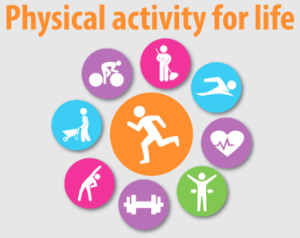
Anxiety and depression are two mental health disorders that affect millions of people worldwide. While therapy and medication are common treatment methods, exercise has emerged as an effective way to manage and alleviate symptoms of anxiety and depression. In this article, we will explore the various ways in which exercise acts as therapy and its numerous benefits for individuals struggling with these conditions.
The Science Behind It
Regular exercise stimulates the release of endorphins, which are known as the “feel-good” hormones. These endorphins interact with receptors in the brain, reducing the perception of pain and triggering positive emotional feelings. Furthermore, exercise increases the production of brain-derived neurotrophic factors (BDNF) which can help repair and protect nerve cells, improving cognitive function and overall mental wellbeing.
Reducing Anxiety
Engaging in physical activity can provide immediate relief from anxiety symptoms. Exercise serves as a distraction, redirecting focus away from worries and intrusive thoughts. Additionally, it promotes relaxation by reducing muscle tension and stress in the body.
Studies have shown that aerobic exercises such as running, cycling, and swimming are particularly effective in reducing anxiety. These activities increase heart rate, improve blood flow, and enhance the body’s ability to regulate stress. Moreover, engaging in exercise regularly can result in long-term anxiety reduction by improving self-esteem and boosting self-confidence.
Fighting Depression
Exercise is a natural antidepressant. When one exercises, the brain releases neurotransmitters like serotonin, dopamine, and norepinephrine, which are associated with mood regulation. By increasing the availability of these chemicals, exercise can alleviate symptoms of depression.
Research has demonstrated that individuals who engage in regular physical activity have a lower risk of developing depression. Exercise not only helps in reducing depressive symptoms but also aids in preventing relapse and improving overall mental stability.
Enhancing Cognitive Function
Anxiety and depression often impact cognitive function, leading to difficulties in concentration, memory, and decision-making. However, exercise can counteract these effects by enhancing cognitive abilities.
Physical activity increases blood flow to the brain, delivering oxygen and nutrients necessary for optimal brain function. It also stimulates the growth of new brain cells, improving learning abilities and boosting memory retention. Additionally, exercise promotes better sleep patterns, which are vital for cognitive restoration and consolidation of information.
Social Interaction and Support
Participating in exercise can provide an opportunity for social interaction and support, crucial components in combating anxiety and depression. Joining group exercise classes, sports teams, or fitness clubs allows individuals to connect with like-minded people and build a strong support network.
In these settings, individuals can share their experiences, gain advice, and find support from others who may have similar struggles. The social aspect of exercise can significantly improve mental wellbeing and contribute to a sense of belonging and community.
Creating a Routine
To reap the benefits of exercise as therapy, it is essential to establish a consistent routine. Setting achievable goals and gradually increasing the intensity and duration of physical activity will ensure sustainable progress.
It is important to choose activities that one enjoys to increase motivation and maintain long-term adherence to the exercise routine. Experimenting with different forms of exercise, such as yoga, dancing, or weightlifting, can help individuals discover what works best for them.
Conclusion
Exercise is a powerful tool in managing anxiety and depression. Its ability to improve mood, enhance cognitive function, and provide social support makes it an excellent adjunct therapy for individuals suffering from these mental health disorders. Incorporating regular exercise into one’s routine can bring about substantial positive changes in overall well-being, leading to a healthier and happier life.

